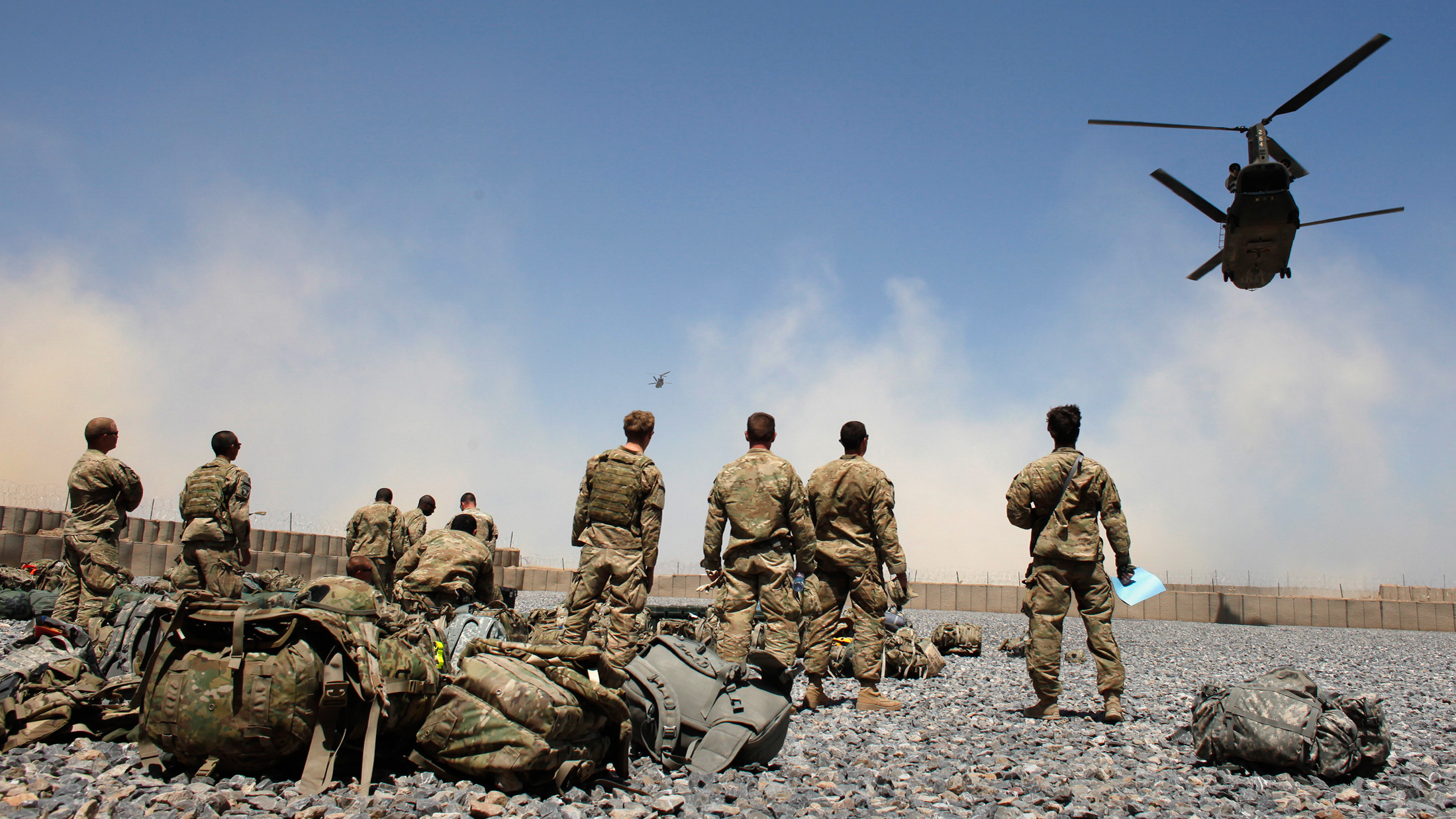When the US began dropping bombs on Afghanistan in October 2001, a conflict was triggered that would stretch beyond two decades and claim the lives of 2,300 US troops and more than 43,000 civilians.
As the US and Northern Alliance Forces took the capital Kabul, the Taliban – which had ruled Afghanistan since 1996 – called for a negotiated settlement to end the conflict. Then US president George W. Bush responded: “There’s nothing to negotiate.”
But with American troops still in the war-torn country today, the tone of both the Islamists and Washington has shifted significantly.
‘Elephant in the room’
Joe Biden’s administration has offered the Taliban an interim power-sharing agreement with the Afghan government, as the US faces an impending deadline set by Donald Trump for the withdrawal of the remaining American troops in the South Asian nation.
The latest bid to end America’s “forever war” has been met with “swagger” from the Taliban, says The New York Times (NYT), which reports that the insurgent group’s leaders are “promoting a bold message: we have already won the war”.
Peace talks aimed at securing a peaceful post-occupation future are set to begin in Turkey next month, but the “elephant in the room” will be the “half-acknowledged truth that the Taliban have the upper hand and are thus showing little outward interest in compromise”, the newspaper adds.
The insurgents clearly “have the advantage”, agrees The Hill, having “slowly overrun Afghan military bases, steadily taken control of large swaths of countryside and encroached on cities”.
The Taliban’s deputy leader Sirajuddin Haqqani declaring in a recent speech that “no mujahid ever thought that one day we would face such an improved state, or that we will crush the arrogance of the rebellious emperors, and force them to admit their defeat at our hands”.
To put that another way, says the NYT, “having outlasted the all-powerful Americans, the rest is child’s play, in the Taliban’s view. The game is essentially over.”
“While the Taliban’s current rhetoric is also propaganda, the grim sense of Taliban supremacy is dictating the response of a desperate Afghan government,” the paper continues.
The insurgents’ victory claim “contributes to the abandonment of dozens of checkpoints and falling morale among the Afghan security forces”, who according to a Western diplomatic source in Kabul, “are already hammered by a ‘not sustainable’ casualty rate of perhaps 3,000 a month”.
Retired Afghan army general Mirza Aslam Beg predicts that the decisive moment in the decades-long war will come when the last US troops leave his country, a withdrawal currently scheduled for completion by 1 May.
Taliban resistance “will grow in intensity”, with the Islamists “gradually consolidating their writ” in the 80% of Afghan territory in which they already have partial control, and “laying siege to towns and cities” currently held by President Ashraf Ghani’s government, Beg writes in an article for Pakistani newspaper The Nation.
Yet despite that prospect, the US faces “the dilemma of the devil and deep sea” in deciding whether to go ahead with the scheduled withdrawal, beg argues. Afghanistan “remains weak and poorly governed”, but the US will suffer “a bigger loss of face” if it decides to stay on “in a war it cannot win”.
As the Biden administration wrestles with this dilemma, the Taliban are already “planning to restore their Islamic emirate”, according to Jawed Kohistani, an Afghan analyst and former security official in Kabul.
“They think they have beaten the Americans, so they can beat the other Afghan forces as well, and get control over the country,” Kohistani told the NYT.
Least bad option?
The power-sharing deal is at the heart of Biden’s plan to get US troops out of Afghanistan and reduce America’s footprint in the Middle East. But “the very notion strains credulity”, says the Brookings Institute’s Michael E. O’Hanlon and Omar Sharifi.
“Apparently, people are to believe that the group that took Afghanistan back to the stone ages in the 1990s, that then harboured and protected the perpetrators of 9/11, and that remains deeply in bed with al-Qaeda, will voluntarily form a new interim government with some elements of President Ashraf Ghani’s administration,” the pair write.
However, while the plan may be built on flawed logic, it “sounds better than another ten or twenty years of forever war, in which government forces slowly but inexorably lose ground to extremists, while foreign forces try to stanch the bleeding”, they concede.
Maintaining a military presence in the country “will invite the insurgent group to restart killing American personnel”, adds Vox, which notes that “there’s simply no overarching consensus on which is the best course of action”.
The fear among Biden’s advisors is that his “administration will own the consequences of what looks to be an increasing calamity in Afghanistan”, says retired US Army Colonel Chris Kolenda, who commanded troops in Afghanistan and served as an advisor to Afghan civilian security forces.
Yet simply maintaining “the status quo locks in misery that the 38 million or so Afghans are living in”, Kolenda told the news site. “That status quo is just not sustainable.”
All the same, the possibility of an Afghanistan run by the Taliban is “causing concern and fear in the minds of the secular world”, Beg writes in The Nation.
That prospect is regarded as an imminent reality by the insurgent group, who believe “their advances will inexorably lead to the end of the Kabul government”, says the NYT.
“On the battlefield there is a sense that, ‘We’re stronger than ever,’” Ashley Jackson, a Taliban expert at the London-based Overseas Development Institute, told the paper.
“Power-sharing and democracy, these are anathema to their political culture.”













